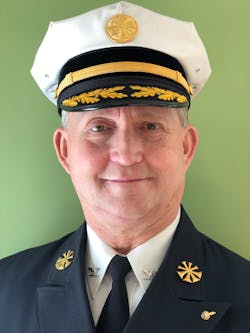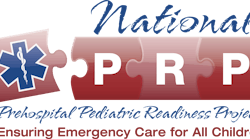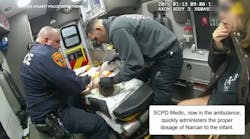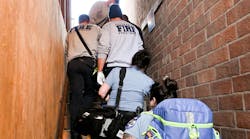I always loved the phrase “Children are like small adults,” although it isn’t exactly true. Some also might say, “The elderly are just older adults.” It isn’t true either.
Younger patients can tolerate shock, heat and cold and most medical emergencies, because their body can compensate from system to system to aid in overcoming. In the elderly, if one body function system has an issue, others fail more quickly, which affects the status quo.
Recognize what’s required
The U.S. population grew 7.3 percent from 2010 to 2021. The 65 and older age group grew the fastest, increasing by 38 percent. Our country is getting older.
The conventional term for a chronological age of 65 or older is “elderly” or “older adult.” Centers for Disease Control and Prevention says about 85 percent of older adults have at least one chronic health condition. Most people who are older than 65 take at least one medication.
After age 30, organ systems lose 1 percent of function per year, and the body is less capable of compensating for shock. Bones break more easily, and simple trauma can cause more harm. Elderly skin dermis thins by as much as 20 percent, and blood perfusion to the extremities decreases.
Brain tissue shrinks, which creates a void in the skull, which increases the chance that a lethal head injury can develop over several days from a simple fall. Be very careful of an elderly patient who has a simple fall complaint. Get a good narrative and determine the history and the patient changes over the previous several days.
First responders must enhance their index of suspicion with elderly patients. Vague and nonspecific complaints and traumatic injuries that have a low-energy mechanism of injury can have life-altering effects.
Broken hips
When an elderly person falls and breaks a hip, the chance of death from complications of immobility or loss of feeling of self-help is greater than when a younger person breaks a hip. Elderly fall victims also can develop rhabdomyolysis quickly. This occurs when damaged muscle tissue releases its proteins and electrolytes into the blood, which can damage the heart and kidneys. It can result in permanent disability or be fatal.
It’s crucial to obtain a good history of the illness and conditions. Symptoms might not appear for days after an injury. If your patient fell and was immobile for an extended period, maintain a high index of suspicion.
Loss of a spouse
Losing a spouse has mental and physical effects. The older that a person gets, the more that individual depends on a team concept for survival. The term “end of life”—or “will to survive”—is common in these incidents. This process break down into weeks, days and hours before the end.
The first stage involves a sense of resignation, including low mood, withdrawal, and reminiscing about childhood and earlier life experiences. Loss of appetite, general weakness and increasing fatigue become noticeable.
In the second stage, people whose spouse died move and talk less and might not respond to conversation or commotion. There might be impaired vision; a drop in blood pressure, heart rate and body temperature; labored breathing; difficulty swallowing; no bowel movements or urination; and hallucinations, illusions and delusions.
In the third phase, the body actively shuts down: abnormal breathing; glassy eyes; cold extremities; purple, gray, pale or blotchy skin on knees, feet and hands; weak pulse; and changes in consciousness, sudden outbursts and/or unresponsiveness.
Always at your best
Don’t forget that hearing is the last sense to fade. Even when unconscious, your patient probably still can hear you. Have a family member or close friend talk to the patient while holding the patient’s hand.
Treat all patients with respect and dignity. You always are caring for someone’s family member.






